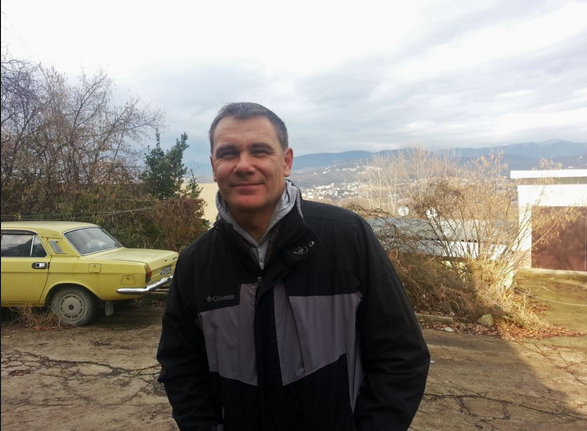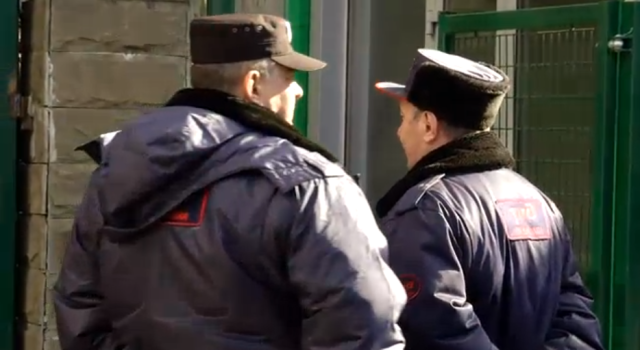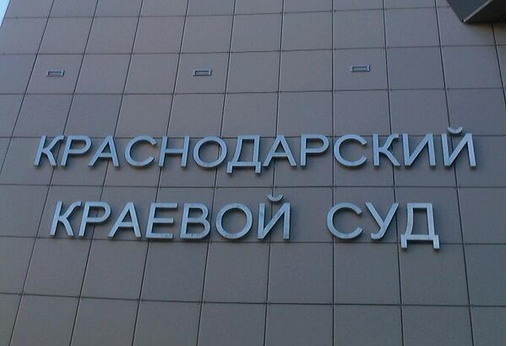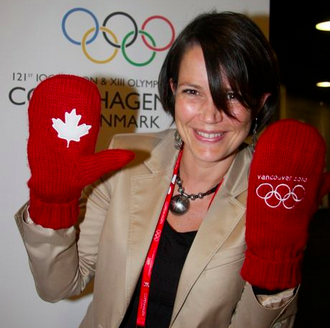
Arctic Frontiers: Disinformation, Security and the Northern Sea Route
Bellona held a seminar on countering Russian disinformation in the Arctic at the Arctic Frontiers international conference in Norway
News

Publish date: February 17, 2014
News
Yevgeny Vitishko, the Russian environmentalist last week sentenced to three years in a penal colony for what is widely believed by Russian civil society organizations, including Bellona, to be his vociferous ecological criticism of the Sochi Olympics, today entered day six of a hunger strike again his imprisonment, activists with the Environmental Watch for the North Caucasus (EWNC) told Bellona today.
Meanwhile, David Khakim, another environmental activist, was earlier today hauled in by police in Sochi for staging a solo picket for Vitishko’s freedom. Police said he did not have a permit to hold a protest, even though permits from authorities are not required for one-person demonstrations under Russian law.
Khakim was accused of blocking a public thoroughfare, according to EWNC’s twitter account. His hearing was held behind closed doors for supposed “security reasons.” As of this writing, he had been sentened to 30 hours of correctional community service.

International Olympic Committee also loudly declared over the weekend that Vitishko’s imprisonment had nothing to do with the Olympics, and they they would not intercede on his behalf, something the activist community says is a clear violation of the IOC’s own policy on pressing an observation of basic human rights by countries hosting the games.
EWNC tweeted the news of Vitishko’s hunger strike on Sunday, the first day after Vitishko’s three-year prison sentence was upheld on February 12 by the Krasnodar court that his friends and other activists were allowed to visit him in his jail cell in Tuapse.
Vitishko and several rights advocacy groups, including Bellona, Greenpeace Russia and Human Rights Watch, have condemned the case against him as being motivated by President Vladimir Putin’s
Bad conditions in Tuapse jail cell
EWNC’s Dmitry Shevchenko confirmed that Vitishko vowed to continue his hunger strike until his conviction for spray-painting a fence in a protected forest almost four years ago is overturned.
He described the conditions in Vitishko’s cell as “substandard.”
“It’s cold, the living conditions are poor, and he has not been allowed meetings with his lawyer and family – jail officials delayed that,” said Shevchenko. Vitishko has also been denied his mail, which includes several thousand letters of support from around the world.

On Tuesday, Shevchenko is scheduled to be sent to a prison colony, but that the conditions of the transfer remain unclear.
“Usually, in such a situation, Vitishko would be allowed to go home, collect his personal items, be with his family for a little while, perhaps a few days,” he said. “but local officials have been totally unclear on how the transfer will happen.”
Calls by Bellona to corrections officials in Tuapse were repeatedly referred by a duty officer who answered the phone to “more competent personnel” none of whom were reachable by press time.
On a slightly more heartening note, Shevchenko said Vitishko will be transferred to a so-called general population prison colony. This means he will not be kept in a cell but rather a more dormitory-like setting, that he will be allowed frequent visits, and, after a period of time, even allowed to return home for short visits.
“We are glad that the conditions will be somewhat more relaxes, but that he would be separated from his family at all when he has committed absolutely no crime at all is still amazing,” said Shevchenko.
The writing on the fence
The construction fence at the center of the legal proceedings is located in protected forestlands surrounding Sochi where a now-finished mansion for Krasnodar Regional Governor Alexander Tkachev stands.
The fence, ironically, also does not exist, according to forestry division records in Krasnodar, a fact confirmed by the Krasnodar prosecutor during February 12th’s court proceedings.

In December 2012, Vitishko and Suren Gazaryan, were handed suspended three year sentences for spray-painting “Tkachev is a Thef” and “This is our Forest “at a demonstration near the fence by the Tuapse court, some 170 kilometers Northwest of Sochi along the Black Sea coast. They were both given three years of probation.
Though no witnesses were allowed to testify on their behalf, both Vitishko and Gazaryan, and numerous others who were at the 12-person demonstration, but who requested anonymity, told Bellona that two tag-along demonstrators were responsible for the graffiti.
The court found that $4000 of damage had been inflicted on the corrugated metal barrier, a price Shevchenko ascribed to expenses incurred when initial efforts to scrub down the graffiti failed, and a new fence section had to be put up in its place.
Other legal actions threatened against Gazaryan after the suspended sentence was handed down prompted him to flee the country, and he was granted political asylum in Estonia last year. He is separated from his wife and two daughters, who live in an undisclosed location in the Krasnodar Region.
Vitishko, too, has been forced to part with his his wife Lena and two sons by his imprisonment, which began earlier than expected.
Court Shenanigans
At the December hearing in Tuapse that converted Vitishko’s three year suspended sentence to a custodial one, he was let free to persue his appeal, initially schedule for February 22, on an agreement that he would not leave the city without official say-so.
On February 3, upon receiving permission to travel to Sochi to speak to international media about the environmental ravages causes by Sochi 2014, and to put final touches on environmental report EWNC intended to release on Feb 6, Vitishko was jailed for swearing in public at a bus stop – based on written statements by two anonymous witnesses – and sentenced immediately to 15 days administrative incarceration. It is assumed that his detention was meant to keep him from talking to reporters in Sochi and also hold up the release of the EWNC Sochi environmental report, which will be available in English later this week.
At the same time, the date for his appeal against his three-year prison colony term was pushed forward from February 22 to February 12, a move his supporters and Bellona say was intentional concocted to assure he could not speak in his own defense in the Krasnodar court.

Vitishko was allowed to speak to the Krasnodar court via a scratchy video link from Tuapse, but it did no good. Judge Alexander Konov convicted him after two minutes of deliberation.
Where is the IOC?
IOC Head of Communications Emmanuelle Moreau on Friday told Bellona in an email interview that Vitishko’s imprisonment did not fall within the IOC’s purview – at least so far as information provided to the organization by the Aochi 2014 Olympic Organizing committee was concerned.
“The information provided by Sochi 2014 throughout the last months indicated that the case of Mr Vitishko was not related to the preparation of the Olympic Games,” she wrote. “The letters we received from different NGOs on this matter did not contain any evidence that this specific case was Games related, either.”
Over the weekend, apparently fed up by hearing from activists, IOC spokesman Mark Adams was even more categorical, despite his nearly ludicrous ignorance of the facts of the Vitishko case.

“We have had confirmation from Sochi, who got the information for us from the relevant authorities, that (Vitishko’s imprisonment) is not Games-related,” Adams said told the US national daily USA Today.
“We understand Mr. Vitishko was arrested after vandalizing a house about three years ago and given a suspended sentence at the time. My understanding is he broke that suspended sentence and was subsequently jailed.”
Bellona General Director Nils Bøhmer ridiculed Adam’s statement asserting that Vitishko was jailed for “vandalizing a house.” He also disagreed strongly with the fundamental reasoning.
“The Vitishko case came about because of his criticism of environmental damage emerging from the building of the Sochi Olympics, so the case is clearly within those things that are ‘Game-related,” said Bøhmer.
”The IOC should have conducted a real investigation into the causes of the Vitishko case before releasing a statement like that.”
Bøhmer further said that the IOC should review its position on the environmental human right’s principles its charter purports to uphold.
Of all the things that Vitishko has been accused of – from swearing vilely in public, which I, as the last reporter to interview him prior to his February 3 arrest knows he would never do, to spray-painting on a fence, which witnesses say he didn’t do, to missing probation inspection that he actually rescheduled, one can only hope that Adams’ sloppy assertion that Vitishko vandalized a house will not be added to the list of bogus charges Vitishko has had to endure.

Bellona held a seminar on countering Russian disinformation in the Arctic at the Arctic Frontiers international conference in Norway

Our December Nuclear Digest, reported by Bellona’s Environmental Transparency Center, is out now. Here’s a quick taste of three nuclear issues arisin...

Bellona has launched the Oslofjord Kelp Park, a pilot kelp cultivation facility outside Slemmestad, about 30 kilometers southwest of Oslo, aimed at r...

Our November Nuclear Digest by Bellona’s Environmental Transparency Center is out now. Here’s a quick taste of just three nuclear issues arising in U...